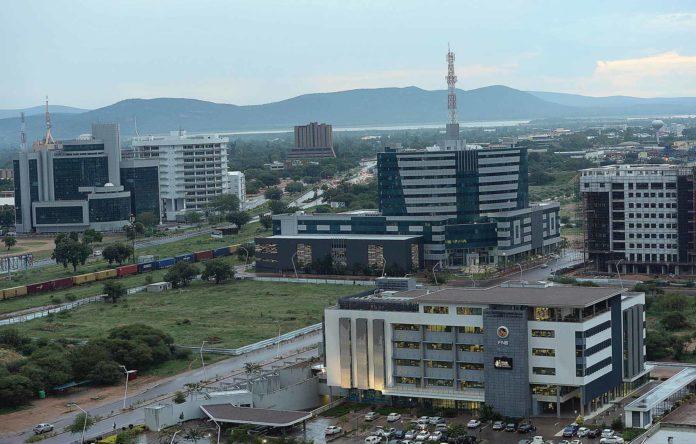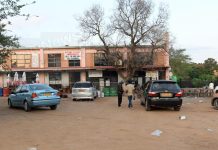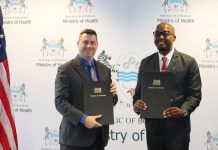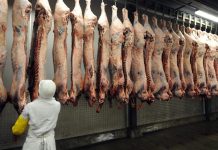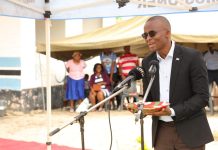Africa-Press – Botswana. Botswana is rich, but its citizens are poor. This is the long and short of the “United Nations Sustainable Development Cooperation Framework-2022-2026)” report.
The United Nations took issue with Botswana’s failure to ratify the International Covenant on Economic, Social and Cultural Rights, a key treaty that would ensure that Batswana’s quality of life is at par with the country’s middle income status.
The report points out that, “ratification would encourage the Government to be more accountable to citizens of Botswana for upholding their rights.” It further states that,“Botswana’s poverty level remains significantly high relative to its status as an upper-middle-income country.”
The UN revealed that about half of the country’s children live in multi-dimensional poverty, with seven out of every 10 children deprived of sanitation. “Children from poor rural households have higher rates of deprivation,” the report says. It says poverty remains high in rural areas, remote communities, and households headed by women.
It adds that a higher proportion of employed women than employed men live below the poverty line.
The report says climate change continues to exacerbate the vulnerability of those living in remote, sparsely populated areas such as those living in Remote Area Dweller Settlements (RADS) and Community Based Natural Resources Management (CBNRM) villages across Botswana.
“The average poverty rate in these communities is higher than the average poverty rate for all rural villages as well as the national average,” it says. The UN says the national social protection system is cumbersome, inefficient and ineffective, with some 30 programmes spread across 10 government agencies.
It says measures are needed to diversify the economy and accelerate economic growth aimed at increased productivity, poverty reduction and the attainment of equitable social development.
“Policies must also lift young people out of exclusion and poverty, especially those living in rural areas,” says the report.
There are limited data, the report notes, including disagregated data, on people living below the international and national poverty lines, living in multidimensional poverty, and covered by the national social protection system.
With regard to peace, justice and strong institutions, the UN did not have kind words for the country’s judiciary noting that; “Botswana’s integrity and oversight institutions do not have the requisite legal frameworks (including independence and autonomy) to function effectively.”
On decent work and economic growth, the report found that Botswana’s unemployment rate (26 per cent, Q4 2021) remains significantly high relative to the country’s position as an upper-middle-income country. “One in three youth is unemployed (Q1 2020) and the number of young people who are not in education, not in employment or training (NEET) stand at 39.4 percent (Q4 2021),” the report says.
It says: “Youth unemployment arises from young people’s lack of specific and technical skills, a mismatch of their skills to the needs of the economy, and the fact that Botswana’s economy relies on a narrow economic base.”
According to the report; “Government’s response to youth unemployment and outcomes has been through policy and programme formulation.”
However, the report says, many of these policies and programmes are often poorly implemented and lack coordination between the different implementing ministries and departments, local authorities, the private sector and NGOs.” The report says; “Inadequate training, mentorship and monitoring have undermined the successful implementation of several youth policies and programmes.”
Touching on hunger, the report says malnutrition remains prevalent among children, especially those living in rural areas. It says children in Kgalagadi (North and South), Mabutsane, Gantsi, Okavango, Boteti and Bobirwa hard-to-reach districts and geographically isolated areas have the highest rates of malnutrition.
“Malnutrition is also observed among children in refugee camps and children of illegal immigrants. The proportion of undernourished was 24.1 per cent in 2020. The 2020 State of Food Security and Nutrition in the World states that 64.5 per cent of Batswana cannot afford a healthy diet,” the report says.
It notes that the number of food insecure people is increasing. “Due to persistent drought and reduced cereal production, the number of food insecure has surpassed the five-year average by 10.6 per cent (2019/2020 consumption year),” the report says. The report observes that the Covid-19 pandemic has exacerbated household food insecurity, especially in rural women-headed households, due to its impact on food production and income generation from informal rural businesses and casual labour.
Touching on health and well-being, the UN noted that Botswana has not yet ratified the International Covenant on Economic, Social and Cultural Rights which imposes an obligation on the state to “recognise the right of everyone to the enjoyment of the highest attainable standard of physical and mental health.”
“Child mortality is high; the under-5 mortality rate is 56 per 1,000, with over half of child deaths in this age range coming as a result of sepsis, severe malnutrition, diarrhea and pneumonia,” the report says.
The report says Botswana still criminalizes abortion (except in cases of rape, incest, threat to life or health of the pregnant woman, or severe fetal impairment) under Section 160 of the Penal Code.
“This contributes to the incidence of unsafe abortions,” the report says.
Regarding quality education, the report says, Botswana has not yet ratified the International Covenant on Economic, Social and Cultural Rights which imposes an obligation on the state to “recognise the right of everyone to education”.
“Education quality remains low for infrastructural reasons, among others. Classroom shortages give rise to high student-classroom ratios. This situation is compounded by the in-class social distancing requirements for combating COVID-19,” the report says.
According to the report, only 30 per cent of children aged 3 to 6 years have access to preschool education which remains driven by the private sector and is therefore unaffordable for the less privileged. “Children in remote areas have limited opportunities and access to early childhood education (ECE) and are more susceptible to dropping out or not registering for school,” it says.
“Rural, poor youth are at risk of exclusion from education due to the implementation of the government’s cost sharing policy, transport costs and the requirement to engage in family labour activities,” the report says.
The report found that “An issue of concern is the re-admission policy of public schools that requires pregnant girls who drop out of school to wait six months before they can return, and which expects pregnant girls to enter technical training instead of general education.”
Botswana is one of the most urbanized countries in Southern Africa. Rapid urbanization, while not resulting in large informal settlements, has resulted in the poor (domestic workers, gardeners, casual labourers and others earning below the minimum wage, as well as hawkers and new rural–urban migrants) and international migrants renting accommodation in self-help housing agency areas and informal settlements such as Gaborone’s Old Naledi, Tlokweng and Mogoditshane, Monarch (Francistown) and Peleng (Lobatse).
It says in Gaborone and Francistown, most migrants from rural villages have moved to degraded housing areas which show signs of slum or squatter habitation. urbanization is also placing heavy demand on infrastructure, housing and services, fertile farmland and less productive drylands, water resources, underserved waste management systems, and social amenities.
For More News And Analysis About Botswana Follow Africa-Press

